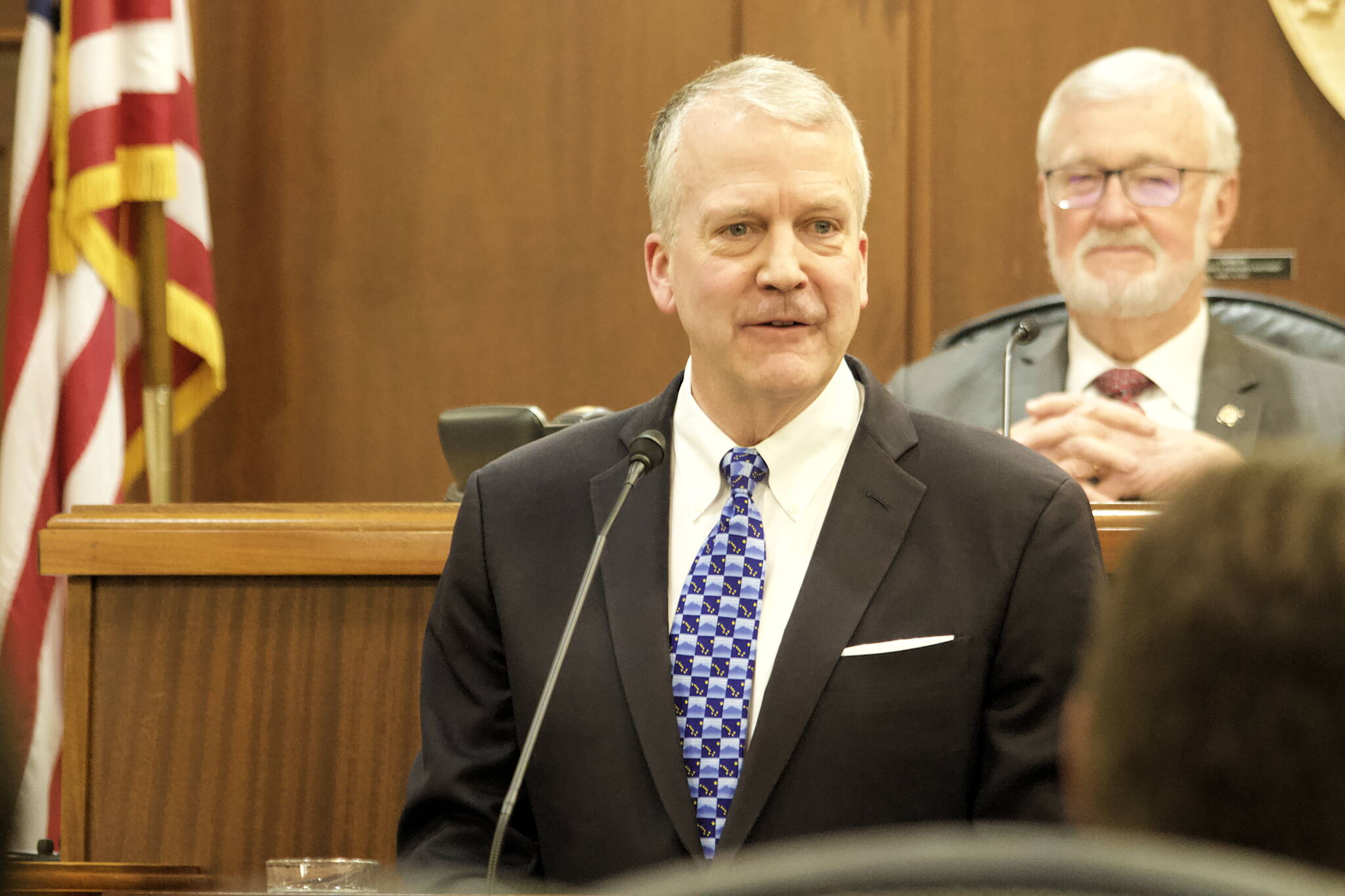A seemingly done deal to bring a U.S. Coast Guard icebreaker to Alaska that would home ported in Juneau fell apart at the last moment last last year. U.S. Sen. Dan Sullivan, among the biggest backers of such a vessel, said Tuesday he still doesn’t know for sure what happened, but offered “hearsay” about Democratic congressional leaders making a deal to nix the vessel in order to boost border security funding.
A $150 million allocation for the icebreaker was authorized in the National Defense Authorization Act and thus included in the $1.7 trillion omnibus budget Congress voted on in mid-December. But when the budget bill was passed the icebreaker funds were no longer in the 4,155-page document.
The plan, as explained by Sullivan last fall, was the Coast Guard would purchase the privately owned 10-year-old Aiviq icebreaker from Edison Chouest Offshore (essentially the only vessel that would meet the legislative language requirements), with hundreds of millions of dollars more spent acquiring acquire land adjacent Coast Guard facilities in Juneau to build infrastructure for the ship and estimated 190 Coast Guard personnel assigned to the vessel.
Sullivan issued a declaratory statement in a speech to a joint session of the Alaska Legislature on Tuesday that an icebreaker intended for Arctic use will eventually be home ported in Juneau. But he was less than 100% certain when pressed for further details.
State Sen. Jesse Kiehl, a Juneau Democrat who expressed support for home porting an icebreaker in Juneau, asked Sullivan during a question-and-answer period immediately after his speech why there was a “hiccup” in the supposedly done deal. Sullivan said it was literally removed by somebody “in the middle of the night” before the final vote on the omnibus bill in what he called a “very disappointing, very frustrating” decision.
When asked at a press conference shortly afterward who removed the funding and why, Sullivan said “we’re still trying to figure out” whose fingerprints are on the evidence, proverbially speaking. But while calling it “kind of a little bit of hearsay,” the senator said then-House Speaker Nancy Pelosi and then-Senate Majority Leader Chuck Schumer were meeting with staff and others “making the final call” on last-moment changes.
“Somebody said they needed more money for border security,” Sullivan said. “This is within the final two hours. Evidently somebody else said ’we can yank this icebreaker funding for addition border security.’”
According to an explanatory statement submitted with the final omnibus bill by Sen. Patrick Leahy, a Vermont Democrat who chaired the Senate Committee on Appropriations, the committee was concerned with the potential cost to convert the icebreaker for Coast Guard operations and a search for a commercially available icebreaker should be expanded to include foreign countries. Previously, finding a U.S.-built ship was prioritized.
Sullivan, while on the House floor and during the press conference, said he is working with the Coast Guard and others involved in the process to ensure an icebreaker does end up in Alaska and he is continuing to assert Juneau will be the home port. But, in a seeming shift from his focus on the Aiviq vessel, he said he’s open to the Coast Guard preferring a foreign icebreaker — as well as the agency opting for another preferred home port.
“I’ve always said leave that to the Coast Guard,” he said, referring to their acquisition of an icebreaker. “I’ve just been really pushing them to do it.”
• Contact Mark Sabbatini at mark.sabbatini@juneauempire.com

